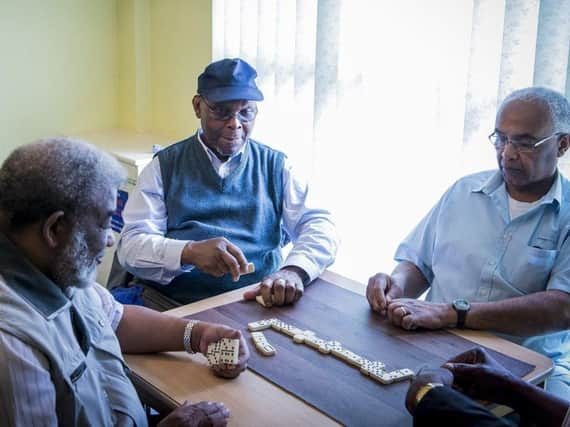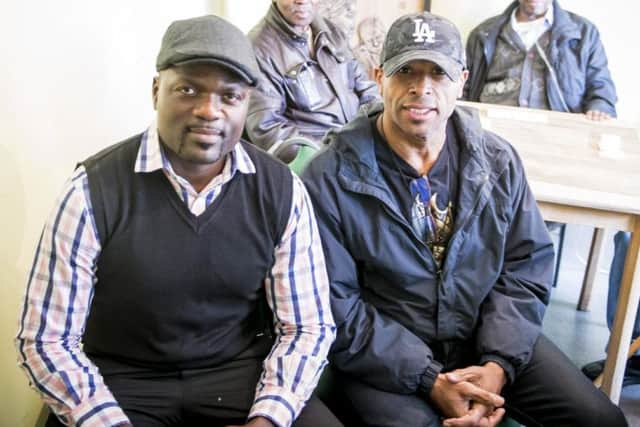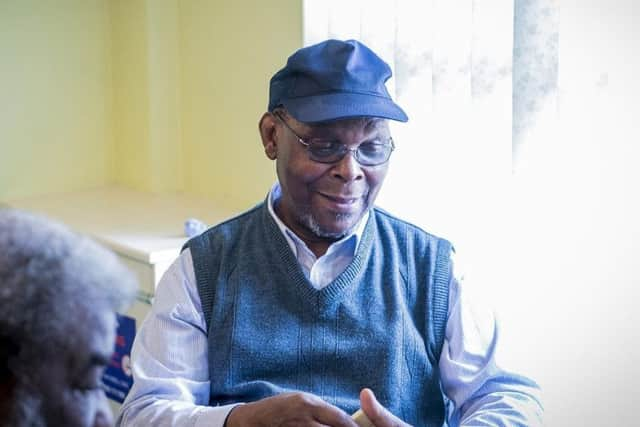Sheffield's African Caribbean community condemns 'shameful' deportation scandal


The Government this week apologised after it emerged many people who arrived from the Commonwealth decades ago as children had been wrongly identified as illegal immigrants.
Its U-turn followed stories of people who had worked all their lives in this country, paying their taxes and raising families here, being deported or threatened with deportation, losing their jobs and being denied NHS treatment.


Advertisement
Hide AdAdvertisement
Hide AdMembers of Sheffield And District African Caribbean Community Association (SADACCA) today spoke of their disgust at the way the affair has been handled.
The group's chairman Rob Cotterell, a 58-year-old probation worker whose parents arrived in Britain from Jamaica in the late 1950s, said: "People came here from the Caribbean because they were invited to do the jobs British people at the time couldn't or wouldn't do.
"They helped rebuild this country after the destruction caused by the German bombs, making it a world leader again.


"Now the Government's admitted this latest wave of deportations was wrong, is it going to bring these people back and give them their NHS treatment for which they paid their taxes?"
Advertisement
Hide AdAdvertisement
Hide AdTreasurer Olivier Tsemo, who was born in Cameroon and came to the UK 29 years ago, said: "It's shameful. We should be talking about the huge contribution the Windrush generation made to this country, not about their immigration status. It's the biggest insult."
Rob Newman worked in the construction and steel industries after coming from the Caribbean to the UK in 1960, aged 19.


"It's not fair to be sending people back when they've lived here almost all their lives and don't know anyone over there," said the 77-year-old, of Stannington.
"We came here because Britain needed workers but we weren't given anywhere to stay back then and our treatment at the time was terrible. It's not right the way people are being treated now after all they've done for this country."
Advertisement
Hide AdAdvertisement
Hide AdThe Windrush generation was named after the ship which brought workers from the West Indies to Britain in 1948, heralding a wave of immigration from Commonwealth nations.


The 1971 Immigration Act granted all Commonwealth citizens already living in the UK indefinite leave to remain but the Home Office failed to keep a record of or issue paperwork to those qualifying at the time.
New immigration rules introduced in 2012 require people to have documentation to work, rent a property or access benefits like healthcare.
People who couldn't produce the necessary paperwork, despite living in the UK since long before 1971, have been faced with the threat of deportation.
Advertisement
Hide AdAdvertisement
Hide AdKeith Lannaman, a retired lawyer specialising in immigration, followed his parents from Jamaica to the UK, which he has called home since 1969.
He called the treatment of Commonwealth immigrants a 'disgrace' but said it was nothing new.
"It's something which has been highlighted in my profession for a number of years," he said.
"In Sheffield there are a number of people who fall into this category of not having documentation and will be living in fear of what happens to them.
Advertisement
Hide AdAdvertisement
Hide Ad"When I came to the UK in 1969 nobody gave me a piece of paper granting me indefinite leave to remain. It was just accepted that you were allowed to stay here.
"Before Jamaican independence that year, you wouldn't have needed papers anyway because you would have had a British passport, and children travelled on their parents' passports.
"I'm aware of people in Sheffield who have been turned away from GP surgeries and hospitals, and at least one person who lost their job because they didn't have the necessary paperwork to show their employer."
There were 5,450 Caribbean people living in Sheffield in 2011, according to the Census that year.
Advertisement
Hide AdAdvertisement
Hide AdChrissy Meleady, director of Equalities And Human Rights UK, estimates that at least 1,000 of them and as many as 3,000 extra people from other Commonwealth communities could be affected by the debacle.
She said the organisation was dealing with a 'sizeable number' of cases in the Yorkshire region but because those were ongoing she could not give specific numbers.
"It's been terrible. As well as facing the threat of deportation, people have lost their jobs, been denied access to healthcare, pensions and even prevented from buying things," she said.
"These are law-abiding citizens being treated like criminals, and their whole lives have been thrown into turmoil. It's getting very distressing not just for those directly affected but for their children and partners.
Advertisement
Hide AdAdvertisement
Hide Ad"People have been given leaflets telling them to talk with a Jamaican accent when they go back to their country of origin to stop them facing prejudice. It's so crass.
"It's absolutely outrageous that the Government has allowed this level of suffering, and that it's taken them being humiliated in parliament to admit they were wrong."
Home secretary Amber Rudd announced on Monday that a new team was being set up to help Commonwealth citizens confirm their status in the UK.
"This is about individuals, people who have built their lives here in the UK and contributed so much to our society," she said.
Advertisement
Hide AdAdvertisement
Hide Ad"I don’t want them to feel unwelcome or to be in any doubt about their right to remain here. There is absolutely no question about their right to remain and I am very sorry for any confusion or anxiety felt."